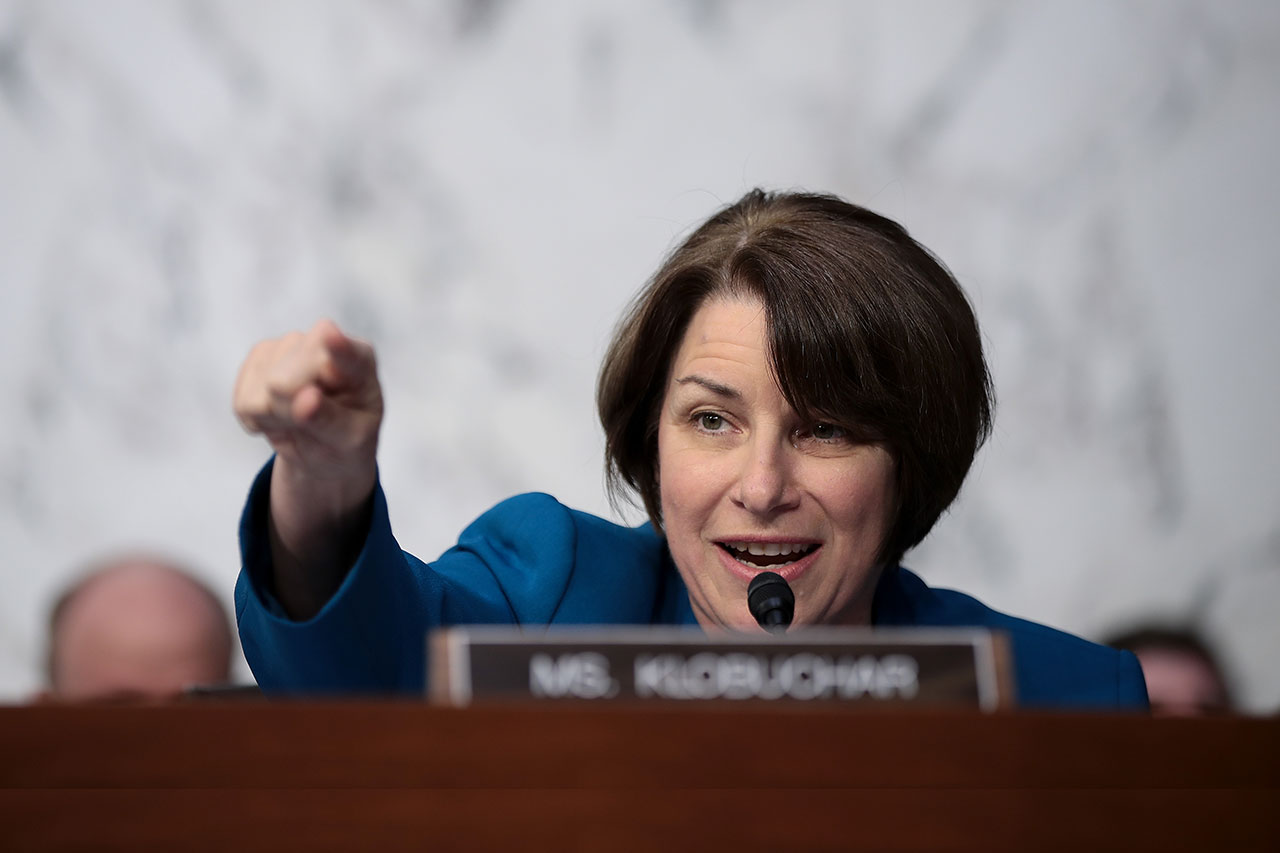In 1970, political demographers Ben Wattenberg and Richard Scammon argued that the country’s median swing voter, the sort of person who decided election outcomes, was the “Dayton housewife.” Hillary Clinton’s shocking loss of five Obama-carried Midwestern states in 2016 could send Democrats in search of a candidate who can unite their party while appealing to the contemporary version of the Dayton housewife and her family. If so, they should be looking closely at Minnesota senator Amy Klobuchar.
You’ve probably never heard of Klobuchar unless you’re a constituent or a political geek, but she’s quietly gaining attention in Washington as a potential contender in 2020, moving up in unofficial estimations of the likely candidates. She rarely breaks through in early national polls, but that’s not a disqualifier. At this stage of the 2016 nomination fight, Bernie Sanders was rarely mentioned in national polls, either.
Klobuchar’s chance rests on how she differs from most of the other serious nominees. With Democratic energy clearly on the left, contenders like Sanders, Elizabeth Warren, and Kamala Harris are vying to outdo one another for progressive favor. Even New Jersey senator Cory Booker, once known as a school-choice-friendly mayor, is swinging portside, as with his attention-seeking histrionics during the Brett Kavanaugh hearings. But that just means that the progressive lane will be crowded. Klobuchar’s appeal will lie with the rest of the party.
Here, she faces a more wide-open field. Only former vice president Joe Biden polls well among contenders considered more amenable to the party’s moderate wing. Biden will be 77 in early 2020, the oldest man ever to run actively for president. He’s prone to gaffes and has failed to make a mark in two prior runs for the White House. He’s also a man, surely no advantage in a party that is nominating women in record-high numbers. Should Biden run and stumble, there’s no obviously strong national figure who could garner moderate Democratic support.
Klobuchar’s record, demeanor, and background are a model of centrist appeal. She is a former prosecutor who nevertheless has compiled a solidly liberal record on economic and social issues. She is low-key in that “Minnesota nice” sort of way, an attribute she displayed during the Kavanaugh hearings when she was virtually alone in treating the nominee with respect, while asking serious questions. She voted to confirm half of Trump’s cabinet nominees, easily the highest share among potential presidential contenders, but nevertheless voted “no” on every controversial choice. She voted against Neil Gorsuch’s nomination to the Court, and she will surely oppose Kavanaugh’s, especially with the sexual-assault allegations now made against him.
Klobuchar’s electoral record also stands out. Minnesota, like the rest of the Midwest, has been moving Republican in recent years. Trump nearly carried the Gopher State, and Republicans control both houses of the state legislature. Yet Klobuchar is set to win easy reelection to her third term this fall. The contenders ranked ahead of her in CNN’s survey of the presidential field all hail from deep-blue states: none has ever had to engage seriously with the sorts of swing voters, suburban and rural, that a presidential nominee must reach. Klobuchar has done so, repeatedly and successfully.
Geography gives her another potential advantage. The long road to the nomination starts in the caucuses of Minnesota’s southern neighbor, Iowa. She has already visited the state twice, appearing in its two largest cities—Des Moines and Cedar Rapids—as well as at Iowa State University. Iowa was one of the five Midwestern states that Trump took from the Democrats, and party activists will be open to the argument that it will take a local to win them back.
Klobuchar will face obstacles should she decide to run. Progressives are on the march, and they seem to want someone whose devotion to the cause is loud and proud. She has never been a national figure, nor demonstrated that she can raise the tens of millions of dollars that a winning candidate must generate. Her appeal to minority voters, who make up close to half of the Democratic base, has been limited; Minnesota is not a minority-heavy state. Should an African-American like Harris or Booker catch fire on the left, Klobuchar would likely face serious headwinds picking up substantial African-American or Latino support.
She should nevertheless be on the radar screen—and she might raise her profile this week. If the planned testimony goes forward in the Senate on Thursday, it’s a good bet that the former prosecutor will play a key role in examining Brett Kavanaugh and Christine Blasey Ford, and she would make herself known to many more Americans. In any case, the kinds of Democrats who preferred Andrew Cuomo over Cynthia Nixon in the recent New York gubernatorial primary will be looking for a plausible candidate in 2020—and the earnest, soft-spoken liberal from the Great Plains has as good a chance as anyone of becoming their choice.
Photo by Drew Angerer/Getty Images




